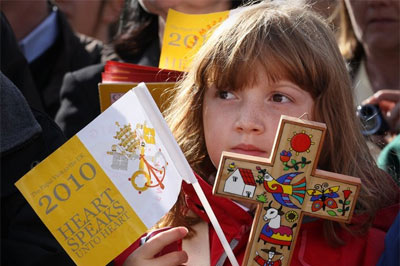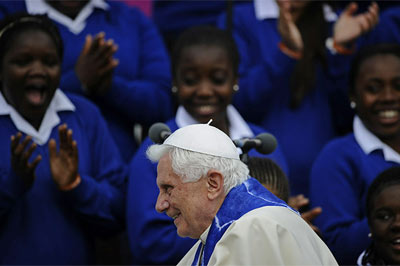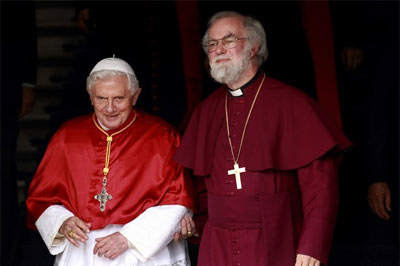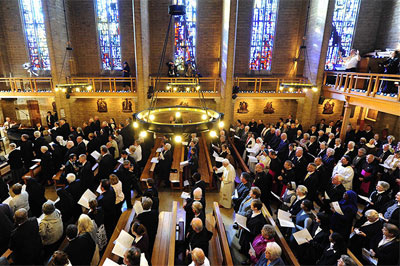for your kind Email.
I am glad you found the illustrated "monastic solitude" appropriate.
Disaster on the same Post.
AND THE APOLOGY FROM BLOGGER says,
"Sorry, the page you were looking for in the Blog 'Dom Donald's Blog does not exist."
You have this copy in your Email, and fortunately it may be possible to PASTE IT BACK INTO A NEW POST.
I am omitting the Scriptural refs for the moment
Hopefully ....
Donald
This has happened before due to some attempted corrections.
----- Forwarded Message ----From: William J - - -To: Fr Donald - - -Sent: Mon, 27 September, 2010 19:31:41Subject: Re: [Blog] Monastic Solitude illustrated
Dear Father Donald,
How beautifully the cloister images illustrate the concept of - and actualize for me - 'monastic solitude'.
Today I took the photo-files and had prints made beside me .....
Thank you most especially.
.... in Our Lord,
William
----- Original Message -----From: Fr DonaldSent: Monday, September 27, 2010 6:07 AMSubject: [Dom Donald's Blog] Solitude Paradox
----- Forwarded Message ----
From: father patrick - - ->
Sent: Thu, 23 September, 2010 20:39:51
Subject: Our Lady of Walsingham Feast Day
September 23, 2010Greetings and Peace:I know that tomorrow is the Feast of Our lady of Walsingham.I feel it will be a wonderful day of thanksgiving at the Shrine and throughout your country.We thank God for the Blessings of the Visit of Pope Benedict XV1.We pray for all pilgrims who gather in person and in spirit with Our Lady of Walsingham.You and your intentions will be in our celebration of Holy Mass on that special day.Sincerely in the Lord
Father Patrick
Feast of Our Lady of WalsinghamOur Lady of Walsingham is England's national Marian shrine.
According to legend, Our Lady appeared in Walsingham to the Saxon noblewoman Richeldis de Faverches, in 1061
In three visions, Richeldis was taken by Mary to be shown the house in Nazareth where Gabriel had announced the news of the birth of Jesus. Mary then asked her to build an exact replica of that house in Walsingham.
Later, Geoffrey de Faverches, left instructions for the building of a Priory by the Holy House. The Priory passed into the care of Augustinian Canons somewhere between 1146 and 1174.
Throughout the centuries, Walsingham became one of the most popular shrines in England. Many pilgrims returned from their visit healed in body and spirit. Walsingham received visits from King Henry III, Edward II, Edward III, Henry IV, Edward IV, Henry VII and Henry VIII, who finally brought about its destruction in 1538.
In 1897, the first official Catholic pilgrimage after the Reformation took place at the restored 14th century Slipper Chapel, which is now the centre of the Roman Catholic National Shrine.
In the 1920s the Anglican shrine began growing in the remains of the original Priory and now has its own church, housing a copy of the original statue of Our Lady of Walsingham and a replica of the Holy House. There is also now a Russian Orthodox chapel in Walsingham. The village is home to many retreat centres and pilgrim hostels and once again attracts thousands of pilgrims each year.
For more information and pictures visit: www.walsingham.org.uk
Friday, 24 September 2010
Friday of the Twenty-fifth week in Ordinary Time
Mass Readings
Ecclesiastes 3:1-11.
Holy Gospel of Jesus Christ according to Saint Luke 9:18-22.
Once when Jesus was praying in solitude, and the disciples were with him, he asked them, "Who do the crowds say that I am?" They said in reply, "John the Baptist; others, Elijah; still others, 'One of the ancient prophets has arisen.'" Then he said to them, "But who do you say that I am?" Peter said in reply, "The Messiah of God." He rebuked them and directed them not to tell this to anyone. He said,"The Son of Man must suffer greatly and be rejected by the elders, the chief priests, and the scribes, and be killed and on the third day be raised." (NAB)
In the Mass Gospel Reading, it so happened that I was reading the New American Bible version. One could think something of a paradox;Jesus in solitude and disciples with him.Only (NAB) has this translation among a dozen versions, including the R. Knox BibleThere is this other favourite to check,;the Knox Bible(NAB) Once when Jesus was praying in solitude, and the disciples were with him,(NJB) Now it happened that he was praying alone, and his disciplesIn monastic vocabulary the word “solitude”, monos, solus, can carry a very special meaning.As Jesus is alone with the disciples in Lk. 9.18 Mk. 4.10 he is not in ‘solitude’. On His ‘temptation in the desert’ Jesus was not ‘with disciples.’Monastic solitude has to be that of ‘disciples being with Jesus’.
Posted By Fr Donald to Dom Donald's Blog on 9/27/2010 06:07:00 AM
















